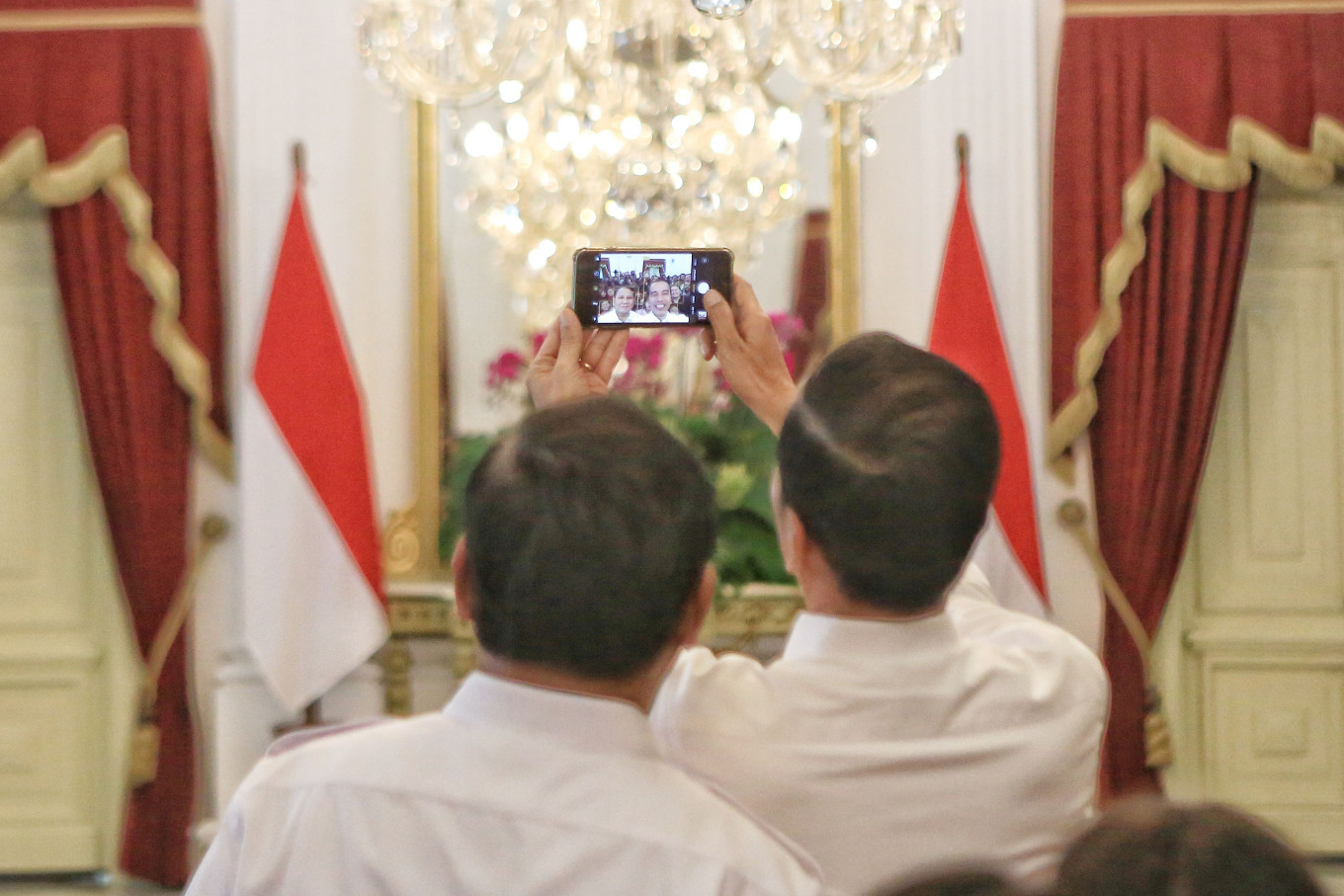Popular Reads
Top Results
Can't find what you're looking for?
View all search resultsPopular Reads
Top Results
Can't find what you're looking for?
View all search resultsIndonesian democracy needs diverse opposition
The recent meeting between President Joko "Jokowi“ Widodo and his former rival Prabowo Subianto can change the political configuration of Indonesian politics in the next five years.
Change text size
Gift Premium Articles
to Anyone
T
he recent meeting between President Joko "Jokowi“ Widodo and his former rival Prabowo Subianto can change the political configuration of Indonesian politics in the next five years. Both seem eager to include Prabowo’s Gerindra party in the government coalition. The reelected Jokowi is in a strong position because he does not really need Gerindra to have a stable majority in the House of Representatives. It is though quite probable that he will accept Gerindra in his coalition and thus he will enjoy a super majority in the House.
The main reasons for Jokowi in doing so is to avoid popular resistance from the Prabowo camp in the next five years of his presidency. Additionally, it is also already a tradition in Indonesia’s democratic presidential system to form grand coalitions with a very small opposition. Then-president Susilo Bambang Yudhoyono did did so during his two terms between 2004 and 2014. International observers used the term "cartel party coalition" to describe his government style in which nearly everybody (except the PDI-P) were on his side, and were rewarded with access to power and patronage.
Grand coalitions are also a common practice in the other presidential system in Southeast Asia, the Philippines, to run as a candidate or the opposition in the legislative elections and then switch to the camp of the winning candidate. After the 2016 elections, elected President Rodrigo Duterte had only a handful of legislators from his party, but soon he was able to create a coalition with the support of more than 90 percent of Congress.
Grand coalitions have advantages. Presidential policies are not criticized by a lot of opposition parties and the consensus reached in a big coalition is more likely to be accepted everywhere. A capable president can manage all government affairs "internally" within his coalition instead of publicly disputing with his adversaries. The negative aspect of a grand coalition with a parliamentary super majority, however, is the lack of a constructive opposition that is critical toward the president and offers alternative policies.
If Gerindra will join the presidential coalition only the Prosperous Justice Party (PKS) will remain in the opposition. Consequently, those citizens that are not satisfied with President Jokowi and his policies (almost 45 percent of voters who voted for Prabowo in the April elections) could be driven to the single remaining opposition party. This would in turn be negative for efrorts to reduce the polarization between the more conservative groups leaning to PKS and the more moderate Islamic political camp.
If the opposition comprises PKS and Gerindra, those who are against President Jokowi have two alternatives to choose: They can either support the nationalist Gerindra or the Islamist PKS. If only the latter remains as opposition party, polarization along the lines of religious piety, which many observers criticized in the 2019 elections, will become even stronger. This in turn could endanger religious tolerance and the principle of "unity in diversity", which is an essential part of Indonesia’s state philosophy.
***
Ririn Sefsani is working for Kemitraan (Partnership for Governance Reform) in Jakarta and founder of Mombine Women Political School.











